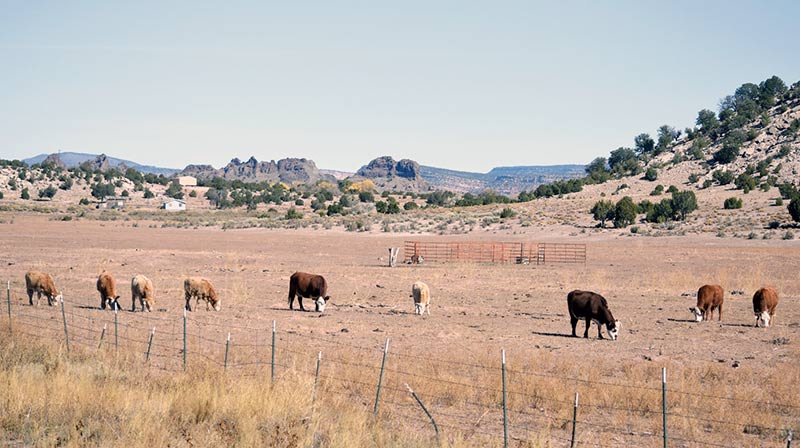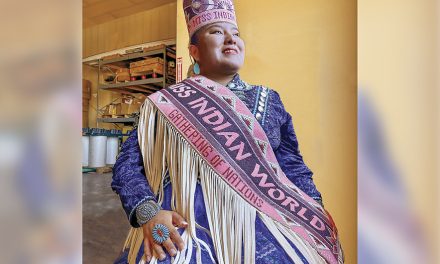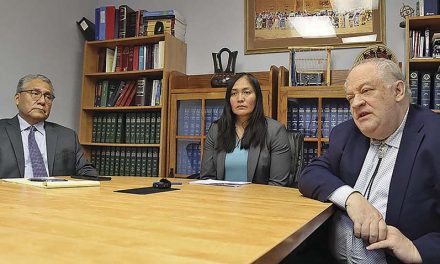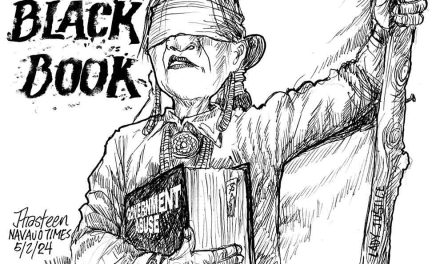
Dry pastures for grazing officials

Navajo Times | Ravonelle Yazzie A group of cattle graze on a Tuesday morning in St. Michaels, Arizona. A ranching expert believes that with more coordination of the available tribal and private resources, ranching could be a profitable enterprise for the Navajo Nation.
DURANGO, Colo.
Navajo Nation grazing officials had hoped to have some time at this week’s Division of Natural Resources Land Summit at the Twin Arrows Casino to voice their concerns over having their entire supplemental appropriation vetoed last month. But a lot of them can’t even afford to drive there.
“I was hoping we could organize some kind of protest once we got there,” said Elouise Brown, grazing official for Tse Alnaozt’i’i Chapter. “But once I called a few people, I realized hardly anyone is going.”
Brown said the tribal government has provided no funds for the officials to attend the summit. The only way she can afford it is to stay with a friend.
The Navajo Nation Council, in its Fiscal Year 2018 budget proposal, had allocated a chunk of cash to defray what grazing officials say is a chronic underfunding problem. But President Russell Begaye had vetoed the line item along with two dozen others, saying the allocations violated the Nation’s fiscal policies and if the division directors needed more money, they should have asked for it during the budget negotiations.
The Resource and Development Committee recently attempted to restore some of the funding through the Undesignated, Unreserved Fund, but that bill will have to go through the committee process and ultimately hit Begaye’s desk again.
Meanwhile, with the new fiscal year already under way, grazing officials say they’re left with their biweekly stipend of $339.78, and it’s not enough to do their jobs.
“We have to do a lot of driving,” said Dale Redhouse, grazing official for T’iis Nasbas Chapter. “Tally count, home-site lease, power line extension, water line extension … These aren’t things we can do from our office. If we even had an office. They don’t even like us working from the chapter house, because we’re not chapter employees.”
That fact presents another problem, noted Brown. The grazing official position was established under Title III (the Navajo Nation Code governing agriculture) rather than Title 26 (the local governance act), so although the grazing officials are each assigned a chapter, and are elected by chapter members, they are not true chapter officials and have no claim to chapter funds.
“I feel like a basketball being passed around,” she said. “I call the agriculture department and say, ‘I’m completely out of money,’ and they tell me to go to the chapter. The chapter says, ‘You’re not part of us. Go to the tribe.'”
To read the full article, pick up your copy of the Navajo Times at your nearest newsstand Thursday mornings!
Are you a digital subscriber? Read the most recent three weeks of stories by logging in to your online account.








 Highway 264,
Highway 264, I-40, WB @ Winslow
I-40, WB @ Winslow